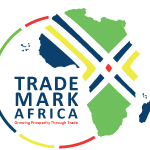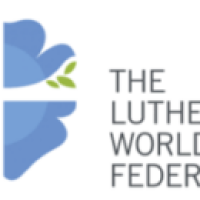A member of TradeMark Africa’s (TMA’s) Business Competitiveness team, the Director of Inclusive Trade leads in the design and implementation of the Inclusive Trade programming and TMA’s Gender and Inclusion strategy in line with TMA’s Strategy 3 priorities. The Gender and Inclusion strategy aligns with TMA’s commitment to sustainable and inclusive trade, as well as with national priorities, the AfCFTA’s continental vision, and global SDG ambitions. It reflects TMA’s dedication to fostering greater inclusion and prosperity for women, youth, and vulnerable groups through trade, aiming for equitable access andbenefits by 2030.
Under TMA’s Strategy 3 programming, the gender and inclusion work builds on the successes and lessons learned from Strategy 2, incorporating key strategic shifts such as: (i) an emphasis on broader inclusion aspects, including gender, age, disability, business size, and migration status; (ii) an expansion of inclusive programming into new regions, such as the Horn of Africa and West Africa; (iii) a specific focus on youth;
and (iv) the design of more integrated and sustainable solutions to enhance the resilience of small and
informal businesses. The portfolio cuts across all TMA country of operations (national level) and at regional and continental level driving inclusion of women, youth and other vulnerable groups in trade.
The job holder is responsible for programme quality and delivery of both Continental and Country
interventions and will ensure that outcomes and associated impacts align with key headline results for
both mainstreaming and targeted initiatives. S/he will ensure mainstreaming of inclusion aspects including
gender, youth, persons with disability and other marginalised groups in all aspects of TMA’s programmes
and operations at both the national and continental levels. The post holder will also continuously build
strong links with the inclusive trade programming in all countries where TMA has a footprint to ensure
integration of inclusion aspects and create visibility on the impact of our work
Roles and responsibilities
Strategy, Fund Raising, Programme Development and Outcome Delivery
▪ Lead the development and /or revision of TMA’s Inclusion and Gender strategies and provide strategic
direction to the country and regional programmes in collaboration with the senior leadership team.
The strategy should include plans for scaling up and broadening the scope and ambition of inclusion
initiatives in TMA, implementation modalities and fundraising in line with strategy 3.
▪ Lead the development and implementation of the Women in Trade (WIT) and Youth targeted
programmes for both regional and national interventions to enhance TMA’s support and investments
in facilitating inclusion of Women, Youth and other marginalised groups in trade.
Support and provide technical oversight on fundraising activities for the inclusive trade portfolio at
both regional and national level. This will include identification of funding opportunities, development
of proposals and partnership frameworks with other organisations and donors.
▪ Oversee the scoping, analysis, and design process, including defining the framework and approaches
for regional and national interventions within the terms of the Gender and Inclusion strategy. This will
also include leading the development of the annual corporate gender plan, identifying opportunities
for improvement of the current programme and assisting in the prioritisation and implementation of
such improvements and greater integration with TMA’s ESG policy.
▪ Incorporate gender and inclusion in all annual business plans, donor work plans and budgets, funding proposals and Project Appraisal Reports (PARs) as relevant.
▪ Represent TMA at high-level regional and international events and conferences in this thematic area.
▪ Manage relationships and communicate with internal and external stakeholders including donors,
partners and service providers and articulate project and programme scope, timeline, budget, risks
and deliverables.
▪ Lead on fundraising and understand funding sources for inclusive trade projects, and timelines agreed with donors; monitor implementation and delivery to ensure that projects are within budget, scope and time. Where changes occur, clearly documents and ensures that relevant internal (SLMT leads) and external stakeholders (donors, partners) are informed.
▪ Apply best practice in financial management and as the accounting officer for programme and project
funds, monitor costs and ensure value for money. Ensures accurate financial information including
informed budgets and reliable forecasts and engages partners/grantees to ensure that budgeting,
forecasting and expenditure is commensurate with progress and expected results in Inclusive Trade.
Performance Management
▪ Lead team and ensure wellness, clarity of roles and motivation.
▪ Conduct both formal and informal performance reviews at least once a quarter and provide timely and constructive feedback.
▪ Provide mentorship and technical guidance to direct reports and other programme staff under the
matrix management modality.
▪ Ensure the team complies to leave management and other HR-related requirements.
Strategic Partnerships/Relationship Management
▪ Identify and manage relationship development with key national and regional players, including
government, private sector, civil society, research organisations, Regional Economic Communities
(RECs) and AfCFTA secretariat.
▪ Convene quarterly inclusion round table discussions with TMA donors and strategic partners in line
with TMA’s governance calendar.
▪ Participate and/or convene Gender Sectoral working groups/advisory groups, communities of
practice or other collaborative platforms in the inclusion & Gender space.
▪ Maintain a database of key partners for the portfolio and ensure strong partner representation at key
TMA corporate events.
Monitoring, Evaluation, Learning and Reporting
▪ Maintain robust monitoring and evaluation systems for programme delivery comprising qualitative and quantitative indicators for all Gender and Inclusion results and activities, in collaboration with the
Programme Delivery Unit (PDU) and Impact team.
Ensure a clear definition of Inclusion targets, indicators and milestones in the corporate results
framework and corporate reports.
▪ Preparation of quality and timely quarterly and annual reports of the programme and financial
performance including Bi-Annual Gender Reports to Senior leadership and donor reports
▪ Facilitate discussion, and information sharing on the Inclusion and Gender portfolio.
▪ Lead the uptake and implementation of the Women in Trade Empowerment Index as the
methodology for impact measurement of TMA’s Gender and Inclusion work.
▪ Lead in the preparation for annual reviews, project, programme and thematic evaluations, reviews,
and audits for the Inclusive Trade Programming and ensure consistent maintenance of project
documentation.
▪ Participate and as required, lead teams and partners in regular informal and formal reflection,
knowledge sharing and learning events on inclusive trade.
▪ Ensures good practice PCM during project design, terms of reference and technical specifications
development, mobilisation, procurement and contract management, outcome/output-based
planning, implementation, timely and quality reporting, project sustainability, and results-oriented
monitoring, evaluation and learning.
▪ Ensure inclusion of gender-sensitive /responsive indicators to track progress towards gender
integration are incorporated in all projects.
Communications & Knowledge Management
• Manage and nurture solid technical competencies and knowledge management across TMA teams and Inclusive Trade & Gender cadre, and through this ensure technical excellence of workstreams to the highest international standards.
• Convene the quarterly Gender Round Table with key donors and TMA staff for information sharing and accountability.
• Manage, mentor and motivate a strong team of programme management staff, ensuring adequate
capacity is developed for successful delivery and visibility of the programme.
• Ensure close coordination and foster strong integration with the other outcome delivery and countrybased teams.
• Collaborate with the communication unit to shape and monitor the programme’s communication plan in line with TMA’s Corporate Communication Strategy and business plan, and visibility commitments to funding agencies.
• Effectively communicate programme progress and Gender and Inclusion results to internal and
external stakeholders and support the delivery of high-quality outputs.
Corporate Objectives
▪ Apply the highest standards of controls and risk management practices and behaviours and embed a
positive risk and control culture.
▪ Demonstrate prudence, sound judgement and appropriate and timely escalations in managing all types of risk (including fraud risk) applicable to the role.
▪ Understand and comply with the relevant end-to-end processes, including applicable risks and controls.
▪ Seek to identify, understand, and escalate risk events/incidents/ issues daily, focusing on fixing root
causes and taking ownership of identified mitigating actions.
▪ Promote and adhere to TMA’s core values and ensure compliance with organisational policies and
procedures.
Academic and professional qualifications
A Postgraduate degree in Economics, Social Science, Development, International Trade, Business
Administration, or other relevant fields plus 10 years’ relevant experience including five years of
leadership and management experience.
▪ Undergraduate degree holders will be required to have at least 12 years of relevant working
experience in strategic oversight and programme management & delivery.
▪ A certificate in project management is an added advantage
Work experience
Ten years working experience with at least five years of leading and managing programmes related to
Inclusion (Women and Youth) & Gender in Africa, including scoping and design of projects, project
implementation, results measurement, reporting and stakeholder management is required.
▪ A solid technical track record in developing and managing Inclusive Trade & Gender programmes and the ability to apply those principles within projects and in private and public organisations.
▪ Knowledgeable on gender and social inclusion programming in Africa
▪ Experience of working with donor agencies such as the Foreign, Commonwealth and Development
Office (FCDO), the European Union (EU), Global Affairs Canada, Agence Française de Développement
(AFD), MasterCard Foundation and/or other development partners is required.
▪ Strong programme cycle management skills, proven ability in preparing terms of reference and project
documents and monitoring and evaluation skills are essential.
▪ Practical experience in project financial and risk management and monitoring and evaluation.
▪ Experience in managing complex and diverse /multi country projects, teams and stakeholders
Technical skills and behavioural competencies
Strong understanding of Inclusion and Equity with a proven track record in working in Trade, gender & economic empowerment of women and youth specifically.
▪ Proven intellectual and strategic thinking skills with strong problem solving and analytical skills.
▪ Robust strategy formulation and implementation skills, including the ability to communicate strategy
and results concisely and simply.
▪ Strong portfolio building and fundraising skills with a proven track record in mobilising funds for
development projects.
▪ Excellent leadership and people management skills. Demonstrate personal qualities and credibility to
lead, develop and motivate staff.
▪ Ability to establish, influence and maintain strong collaborative partnerships/relationships with
development partners, high ranking government officials, civil society and private sector organisations.
▪ Adept at working with diverse teams, delivering change and demonstrating value for money.
▪ Ability to influence others to achieve objectives and gain consensus and collaboration.
▪ Strong strategic thinking, formulation and implementation skills including the ability to communicate
strategy and impact concisely and simply.
▪ Fluent (writing, reading, and speaking) in English, with excellent report writing skills and the ability to effectively communicate and articulate key issues clearly and concisely. French proficiency is an added advantage.
▪ Excellent presentation, oral and written communication skills, with the ability to influence others to
achieve objectives and gain consensus and collaboration.
▪ Good understanding of the development sector and key national contexts as relating to regional trade
and economic empowerment of women and youth.
▪ Strong analytical and advocacy skills.
▪ A self-motivated individual with excellent personal effectiveness skills who can work both
independently as well as part of a team.
▪ Solid programme and financial management skills.
▪ Sound decision-making and judgement capabilities, as well as good problem-solving and analytical
skills.
▪ The ability to handle competing priorities and a challenging workload.







